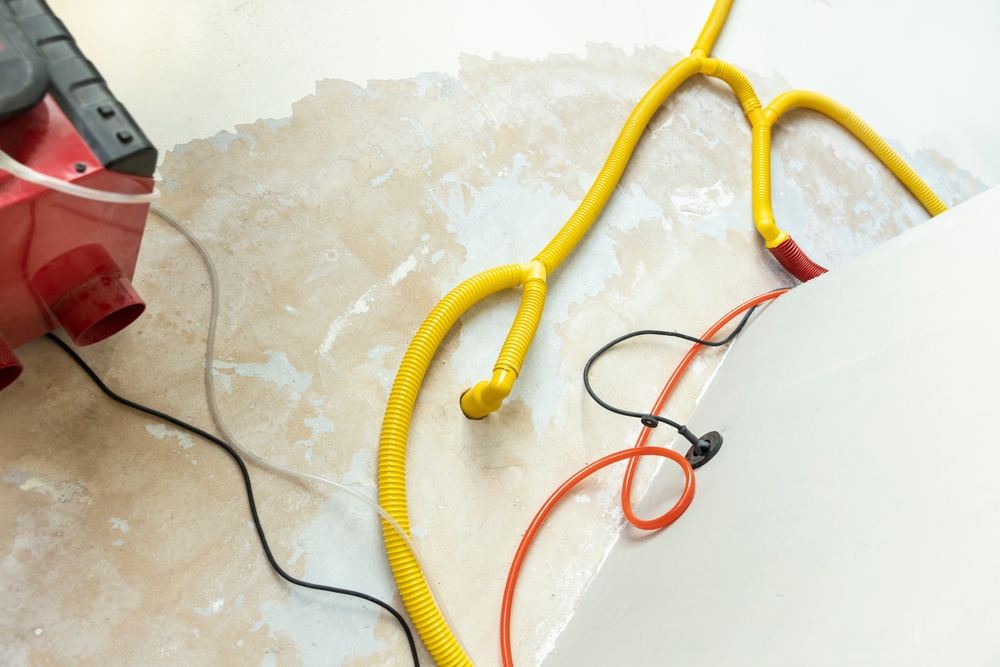Top Causes of Water Damage in Clearwater, FL — And How to Prevent Them

Living in Clearwater, FL offers the beauty of sandy beaches, tropical weather, and year-round sunshine. However, residents of this picturesque city must also deal with the ever-present risk of water damage. From unpredictable storms to plumbing failures, the potential for water-related disasters is significant. Understanding the common causes of water damage is crucial for homeowners and business owners alike, especially in flood-prone Pinellas County. This blog explores the top sources of water damage in the Clearwater area and offers practical steps for flood damage prevention and effective response, including when to seek emergency water removal services.
Weather Woes: Storms and Flooding in Clearwater
Clearwater, FL is no stranger to heavy rainfall, tropical storms, and the occasional hurricane. These weather events are among the most common causes of water damage in the region. The city’s coastal location and low elevation make it particularly susceptible to storm surge, flash flooding, and prolonged rain events. During the Atlantic hurricane season, which runs from June to November, residents often face high winds and torrential downpours that can overwhelm drainage systems and cause water to enter homes and buildings.
The combination of heavy rain and inadequate flood infrastructure can lead to standing water around foundations, roof leaks, and soaked interiors. Even a few inches of floodwater can result in thousands of dollars in property damage, including ruined flooring, warped wood, and dangerous mold growth. Homeowners in flood-prone zones should review FEMA flood maps and invest in flood insurance, sump pumps, and sandbags. Maintaining clear gutters and grading your yard to direct water away from the house can also help reduce risks.
Plumbing Problems: Leaks and Pipe Failures
Beyond weather-related events, internal plumbing failures rank high among the common causes of water damage in Clearwater. These can range from minor issues like a leaky faucet or dripping pipe under the sink to catastrophic problems like a burst pipe or broken water heater. In older homes especially, corroded pipes, worn-out fittings, and outdated plumbing systems pose significant threats.
Pinellas County homes may also experience hard water, which accelerates the deterioration of plumbing infrastructure. Over time, minerals build up in pipes and appliances, weakening components and increasing the likelihood of leaks. Unfortunately, many of these issues go unnoticed until visible signs appear—water stains on ceilings, peeling paint, or an unexpected spike in the water bill.
To prevent such plumbing disasters, homeowners should routinely inspect visible pipes, check for signs of moisture or mold, and schedule annual plumbing maintenance. Installing leak detection sensors can provide early warnings, allowing for quick intervention before major damage occurs. Immediate response with emergency water removal services can also mitigate damage when plumbing issues strike unexpectedly.
Roof Damage and Structural Weaknesses
Roof leaks are another major contributor to water damage in Clearwater, FL. The region’s climate—with intense sun, high humidity, and sudden storms—can degrade roofing materials more quickly than in drier regions. Missing shingles, cracked tiles, or failing flashing around chimneys and vents often allow water to infiltrate during storms. When rain seeps through a compromised roof, it can saturate insulation, damage drywall, and foster mold growth within walls and ceilings.
Additionally, aging foundations and poorly sealed windows or doors can create entry points for water, particularly during heavy rains or floods. Homes that have settled unevenly may develop cracks where water can seep in unnoticed. In extreme cases, water damage from structural vulnerabilities may compromise the building’s integrity, leading to costly repairs.
Regular roof inspections—especially after storms—are essential for identifying vulnerabilities early. Clearwater residents should also inspect the seals around doors and windows and apply weatherproof caulking as needed. Roofs should be replaced or repaired as they age, typically every 15–25 years depending on the material used. Staying proactive with maintenance helps avoid the need for emergency water removal services during storm season.
Appliance and HVAC Malfunctions
Household appliances can be a hidden source of water damage, particularly in Clearwater homes where high humidity can exacerbate wear and tear. Washing machines, dishwashers, refrigerators with ice makers, and even HVAC systems can develop slow leaks or suddenly fail, releasing large volumes of water. In many cases, these leaks are gradual and go undetected until the damage becomes severe—warped floors, soggy baseboards, and mildew odors are common indicators.
HVAC systems are especially prone to water issues in humid climates like Florida’s. Condensation lines can clog and overflow, and poorly insulated ducts may accumulate moisture, leading to both water damage and indoor air quality issues. These problems often worsen during the summer when air conditioners work overtime to counteract the heat and humidity.
To reduce the risk of appliance-related damage, Clearwater homeowners should follow manufacturer guidelines for maintenance and replace aging hoses and connectors. Condensate drains on HVAC systems should be cleaned regularly, and drip pans should be checked for overflow. Installing a water sensor near vulnerable appliances can alert you to leaks before they spiral out of control, giving you a better chance to call for emergency water removal services in time.
Human Error and Neglect
Sometimes, the biggest threats come from simple human mistakes. Leaving a bathtub running, forgetting to shut off a hose, or failing to respond promptly to small leaks can all result in significant water damage. In Clearwater, where people often spend time outdoors or away on vacation, unattended water issues can worsen quickly.
Neglect also plays a role in long-term water damage. Ignoring clogged gutters, failing to repair minor leaks, or delaying roof maintenance can allow small issues to develop into major problems. Water damage from neglect often isn’t covered by insurance, placing the full financial burden on the homeowner.
The best way to prevent water damage caused by human error is to stay vigilant. Never leave running water unattended, especially when filling tubs or sinks. Turn off the main water supply when leaving town for extended periods. Most importantly, act quickly at the first sign of trouble—waiting too long can turn a minor fix into a major restoration project.
Safeguarding Your Clearwater Home from Water Damage
Understanding the common causes of water damage is only half the battle. Preventative measures and timely response are key to keeping your home safe in Clearwater, FL. Given the city’s exposure to tropical weather, aging infrastructure, and coastal environment, proactive homeowners can take several steps to reduce their risk and avoid the costly aftermath of water damage.
Start by investing in annual inspections of your roof, plumbing, and HVAC system. Be diligent about maintaining appliances and replacing worn-out components. Clear gutters regularly and ensure proper drainage around your property. Consider installing water detection devices in vulnerable areas like under sinks, near the water heater, and behind appliances.
For residents in flood-prone zones of Pinellas County, flood damage prevention strategies are essential. Elevate appliances, use waterproof materials in basements or ground floors, and maintain flood barriers such as sandbags or sump pumps. Staying informed about weather alerts and having an emergency response plan in place will help you act swiftly when storms are on the horizon.
Despite all precautions, water damage can still strike without warning. In those moments, immediate action is critical. Emergency water removal services in Clearwater are available 24/7 and can help minimize the impact of floods, leaks, and overflows. Professionals equipped with powerful drying equipment and moisture detection tools can prevent mold growth and structural damage when they are called early.
Conclusion
The key to protecting your Clearwater home lies in awareness, preparation, and a commitment to regular maintenance. By staying ahead of potential risks and responding quickly when problems arise, you can avoid the stress, expense, and disruption that water damage brings. Whether it’s safeguarding against a summer storm, fixing a leaky pipe, or calling in the pros for emergency water removal, every action you take helps keep your home dry and secure.
